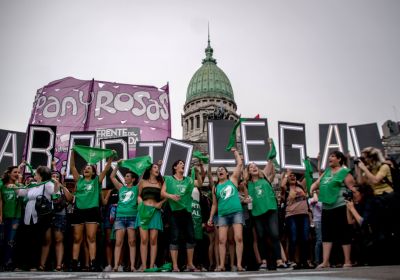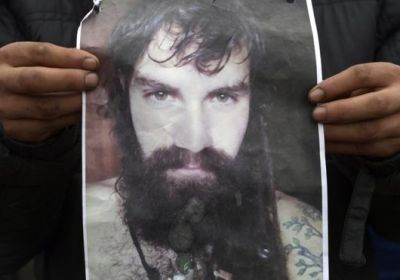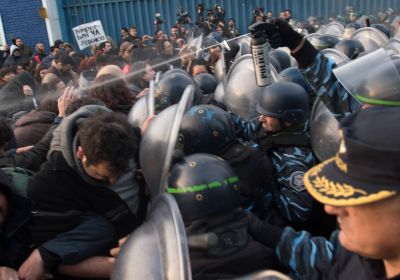-
-

Voices from across South America have denounced Israel’s massacre of more than 50 Palestinians on May 14 and its ongoing repression of protesters participating in the Great March of Return that began in Gaza on March 30.
They have also condemned the United States’ decision to move its Embassy to Jerusalem and pledged support to the boycott, divestment and sanctions (BDS) campaign against Israeli apartheid.
-
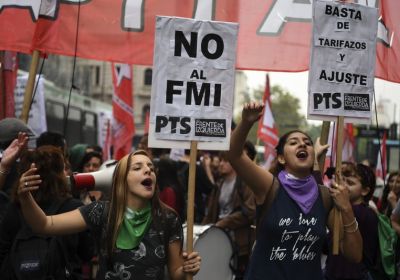
Thousands of Argentine’s were on the streets on May 15 protesting President Mauricio Macri’s latest macroeconomic policy — a major loan from the International Monetary Fund (IMF).
-
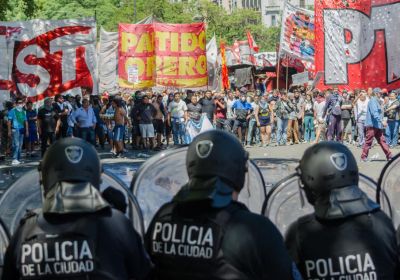
Mass mobilisations broke out in Argentina over the last two weeks of 2017 following the government’s attempt to cut pension benefits. Unions, political parties and student organisations took to the streets to protest the austerity measures and resist the battering of the police.
-
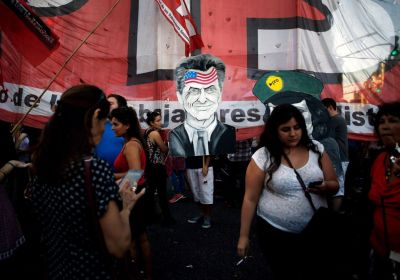
Argentina went to the polls on October 22, in what many saw as a crucial mid-term test for President Mauricio Macri and the right-wing coalition behind him, Cambiemos (Let’s Change).
In the end, Cambiemos came out strengthened, while the Left and Workers Front – an alliance of revolutionary parties – continued to build on its previous electoral successes, winning 1.2 million votes.
-
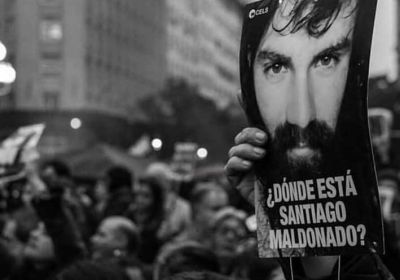
Veronica Heredia, the lawyer representing missing activist Santiago Maldonado's family, has said they will wait for the autopsy results of the body found on October 17 in the Chubut River, in Argentina.
Sergio Maldonado, the brother of the missing activist, also questioned how the body was found upstream, in a previously checked area, where a corpse could easily have been previously found.
-
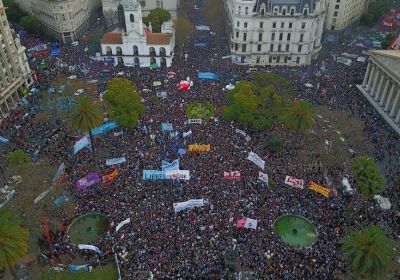
More than 100,000 people filled the Plaza de Mayo in the country’s capital, Buenos Aires, on September 1 to demand the reappearance with life of indigenous rights activist Santiago Maldonado. The rally was held to mark a month since 28-year-old Maldonado was last seen.
Maldonado had been participating in a protest with a group of indigenous Mapuche people on August 1 in Chubut province, in Argentina’s iconic Patagonia region. The protest was repressed by Border Force officers, who witnesses allege were seen dragging Maldonado into a van.
-
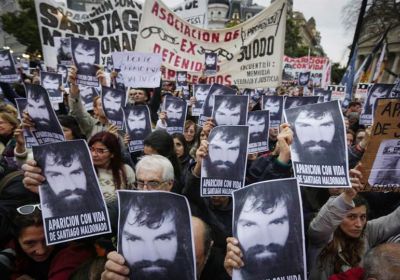
September 1 marks one month since the last time he was seen. Santiago Maldonado, a 28-year-old artisan, was protesting on August 1 in solidarity with the struggle of the Mapuche people from the Lof Cushamen community in Chubut province, in Argentina’s Patagonia region.
-

Football players, past and present, have spoken out on the case of Santiago Maldonado, an indigenous rights activist who has not been seen since Border Force officers violently broke up a protest by a Mapuche community in Argentina’s Patagonia region on August 1.
-
-
-
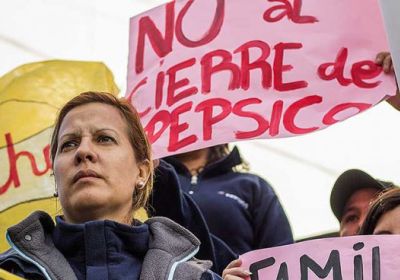
Workers at a PepsiCo factory in Argentina have occupied the plant following its closure on June 20, which left 600 workers without a job.
The company claims the closure is due to an “economic crisis”, despite making millions of dollar in profits last year. However workers at the factory, which is located in Vicente Lopez, in Greater Buenos Aires Province, see the move as part of a broader anti-worker offensive by bosses and the pro-corporate government of President Mauricio Macri.
Argentina
Argentina
